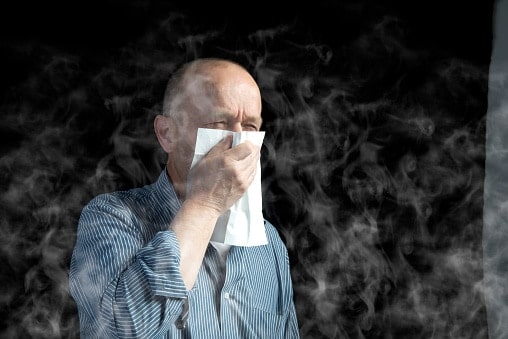
Introduction
In today's fast-paced world, cleanliness and hygiene are paramount. The market is flooded with a plethora of cleaning products promising sparkling results and pristine environments. However, beneath the allure of convenience lies a hidden danger: chemical-based cleaners. While these products might deliver on their cleaning claims, they often come with a heavy price – endangering our health and the environment. In this blog, we delve into the facts and statistics surrounding the risks posed by chemical-based cleaners, shedding light on the reality that often remains unnoticed.
The Toxic Ingredients Lurking in Your Cleaning Cabinet
Many chemical-based cleaners on the market contain a cocktail of toxic ingredients. These chemicals can emit harmful fumes that linger in the air we breathe, posing a serious threat to our respiratory health. Ingredients such as ammonia, bleach, phthalates, and parabens are known to be linked to various health issues, ranging from allergies and skin irritations to more severe respiratory and neurological problems.
Hospitalizations and Deaths: A Startling Reality

The consequences of using chemical-based cleaners can be alarming. According to data from the American Association of Poison Control Centers, exposure to household cleaning products led to over 200,000 cases of poisoning in the United States alone in a single year. Furthermore, a study published in the American Journal of Respiratory and Critical Care Medicine reported that regular use of chemical cleaners is associated with a decline in lung function comparable to smoking 20 cigarettes a day over a 10 to 20-year period.
Deaths related to chemical cleaners are not isolated incidents either. The World Health Organization (WHO) highlights that many cleaning products contain volatile organic compounds (VOCs) that can contribute to indoor air pollution. This pollution has been linked to around 4.3 million deaths globally each year, with respiratory diseases being the primary cause.
Vulnerable Groups at Risk

Certain demographics are more susceptible to the adverse effects of chemical cleaners. Children, for instance, are more likely to be affected due to their developing respiratory systems and curious nature that leads to increased exposure. Moreover, individuals with pre-existing respiratory conditions like asthma are particularly vulnerable, as these chemicals can exacerbate their symptoms and trigger attacks.
The Environmental Toll
The dangers of chemical-based cleaners are not confined to our health; they also take a toll on the environment. Many of these products contain non-biodegradable ingredients that persist in the ecosystem, harming aquatic life and soil quality. When these chemicals are washed down the drain, they can find their way into rivers and oceans, contributing to water pollution and disrupting delicate ecosystems.
A Safer and Greener Alternative
Thankfully, safer alternatives to chemical-based cleaners exist. Many natural and eco-friendly cleaning products utilize plant-based ingredients and biodegradable formulations. These products are just as effective at cleaning without the harmful side effects. Culleoka Company, for example uses all-natural plant -based cleaners and probiotics in their cleaning solutions.
Conclusion
The dangers of chemical-based cleaners cannot be ignored. The statistics speak for themselves, showing the real and often devastating consequences of exposing ourselves, our loved ones, and the environment to these harmful substances. It's high time we reconsider the products we use and opt for safer alternatives that prioritize our well-being and the health of our planet. By making informed choices, we can protect our health, reduce pollution, and ensure a cleaner, safer future for generations to come.
God Bless,
Sonny Hobbs
Owner, Principal
A little about Sonny Hobbs and The Culleoka Company
(1) About Us (culleokacompany.com)
All rights reserved

